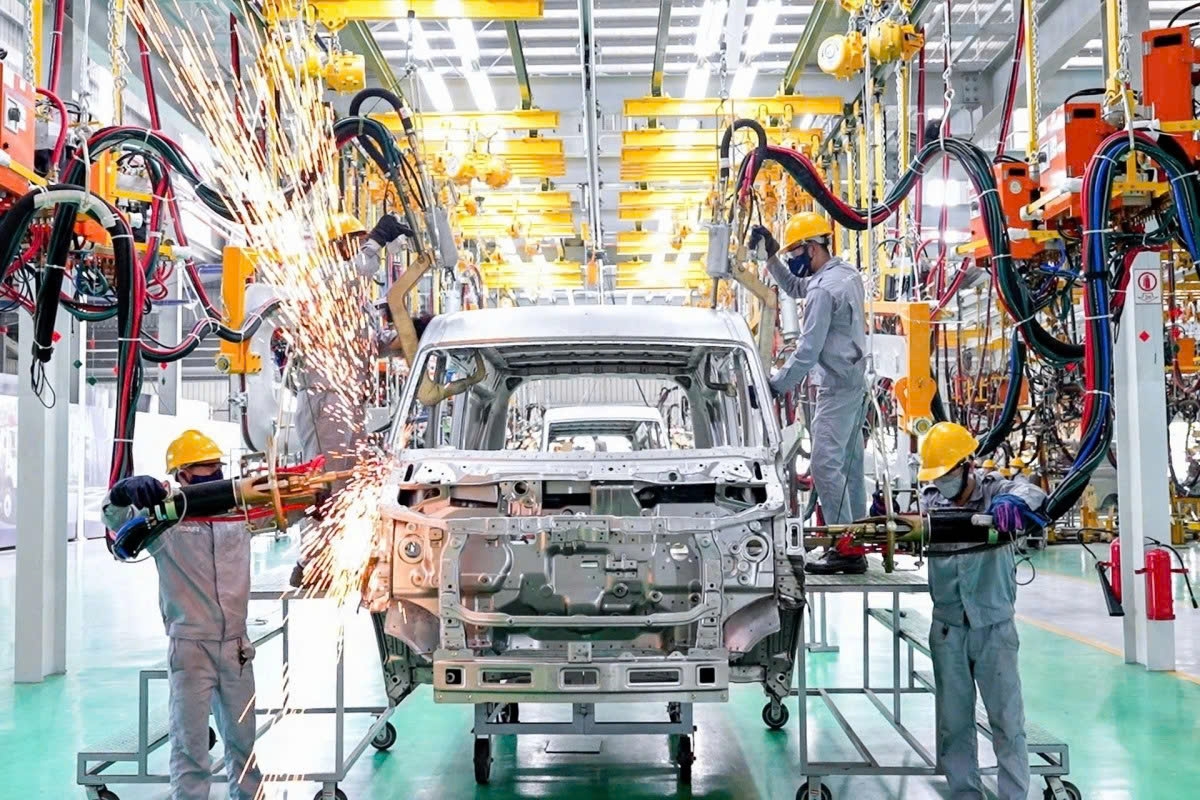Entrepreneurs - the pioneering force driving growth, innovation, and integration
VOV.VN - Over the past nearly four decades since the Doi Moi (Renovation) process, Vietnam’s community of entrepreneurs and enterprises has grown stronger, becoming a vital pillar of the national economy.

According to To Hoai Nam, Standing Vice Chairman and Secretary-General of the Vietnam Association of Small and Medium Enterprises, Vietnam had only about 92,000 active businesses in 2004. Today, that figure has grown more than tenfold, with nearly 940,000 enterprises in operation, alongside 30,000 cooperatives and over 5 million household businesses.
The business sector now contributes around 60% of GDP, accounts for 98% of total exports, and provides jobs for 85% of the national workforce. Businesses and entrepreneurs are now present across almost all sectors of production and commerce. Not only thriving domestically, many have also made their mark internationally, building strong brands that enhance Vietnam’s position on the global stage.
Numerous enterprises have mastered technology, taken the lead in innovation, and established ecosystems that enable small and medium-sized businesses to grow together. They are also at the forefront of green transformation and digital transformation, actively contributing to solving major national challenges.
Despite global challenges such as pandemics, climate change, and economic volatility, Vietnamese entrepreneurs have demonstrated resilience, creativity, and adaptability. They are pioneers in innovation, digital transformation, and green growth, mastering technology, building brands, and elevating Vietnam’s position in the global economy.
Nam noted that while the number of enterprises is rapidly increasing, most are small and medium-sized, facing limitations in competitiveness and management capacity. Many enterprises have yet to optimise their resources, lack long-term strategies, and struggle to adapt quickly to market changes. Investment in innovation, technology, and human resources remains limited, resulting in low labour productivity and weak competitiveness in the international market.
They also face numerous challenges in meeting standards related to quality, environment, and labour in order to engage more deeply in global supply chains. In addition, competitive pressure from large domestic and foreign enterprises, along with increasingly demanding international market requirements, is forcing small and medium-sized businesses to transform their management mindset and strengthen cooperation.

To ensure sustainable growth, Nam said, it is essential to strengthen linkages and value chains, connecting smaller firms with larger corporations to share resources, technology, and expertise. The two major economic hubs - Hanoi and Ho Chi Minh City - are expected to lead in innovation, pilot new business models, and establish centers for technology transfer and enterprise networking, fostering a dynamic and sustainable business ecosystem.
The Resolution No. 68-NQ/TW of the Politburo on private sector development has brought a “new breath of vitality” to the business community. In the first nine months of 2025 alone, more than 231,000 enterprises were newly established or resumed operations, demonstrating the robust growth of the private sector which is currently the most dynamic and innovative driver of Vietnam’s economy.
Moving forward, Nam emphasised that, Vietnamese enterprises must overcome three key challenges - digital transformation, green production, and access to capital. With the right support, especially through innovation programmes and partnerships between small, medium, and large enterprises, this community will continue to be the driving force for Vietnam’s sustainable economic development, helping to realise the country’s vision of prosperity and strength.





